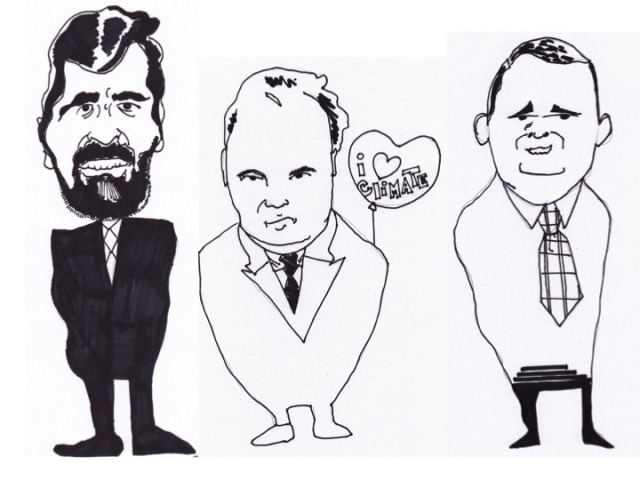Yesterday, the Heritage Foundation hosted The Heartland Institute’s CEO Joseph Bast, along with two of Heartland’s contracted climate denial scientists (Willie Soon and Bob Carter), to present their new report that denies the seriousness of global warming. Greenpeace was there to ask Heartland about the report’s funders, including billionaire Barre Seid, and to challenge Heartland’s assertion that their work has any scientific validity (it doesn’t). See the video for yourself.
Heartland’s “Climate Change Reconsidered,” written by the usual climate denier suspects under the guise of the “Nongovernmental International Panel on Climate Change” (NIPCC) is intended to undermine new scientific findings from the United Nations Intergovernmental Panel on Climate Change (IPCC). Despite what Joe Bast and Heartland comms director Jim Lakely claim, their false report is not peer-reviewed, a formal process conducted by editors at actual scientific journals have other qualified scientists rigorously review and critique submitted work if it is to be approved for publication.
You’ll notice that Heartland’s climate denial report isn’t being published in any scientific journals, but rather from Heartland itself. This is because the document is a public relations tool intended to keep politicians and the public doubting that global warming is worth addressing.
While Heartland continues politicizing science, demonizing credible scientists and using tobacco industry tactics to forge doubt over global warming, Americans are feeling the real toll climate change is already taking on society, by increasing the severity of storms like hurricane Sandy or pushing droughts, wildfires and heatwaves to new extremes.
Heartland doesn’t care, or even recognize, that global warming is already costing the global economy $1.2 trillion dollars and contributing to 400,000 deaths each year. They don’t care that billion-dollar weathers disasters, intensified by climate change, are on the rise and impacting the U.S. economy and our infrastructure. Nor do they accept repeated research indicating the overwhelming consensus among credential climate scientists that human fossil fuel use is the primary driver of unnatural global warming–in fact Heartland’s staff have repeatedly lied to cast doubt upon that research.
Subscribe to our newsletter
Stay up to date with DeSmog news and alerts







